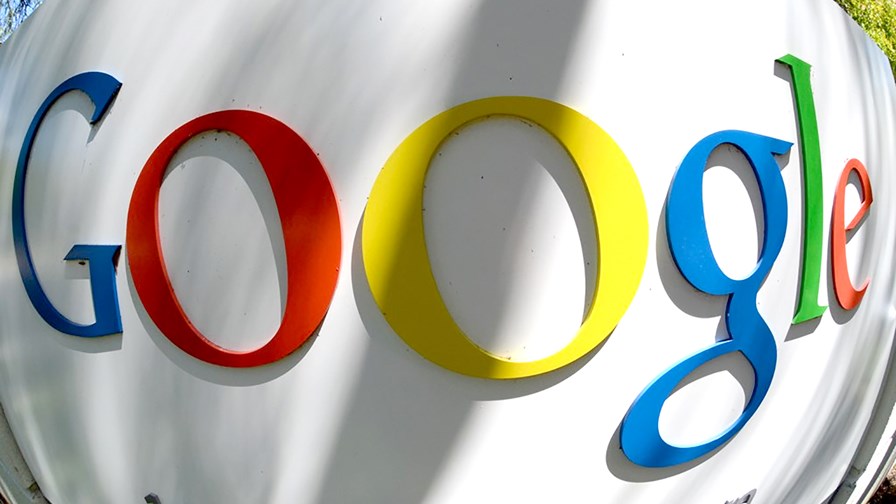
© Flickr/cc-licence/Kristina Alexanderson
- Department of Justice anti-trust case pending
- Individual states joining the hunt
- Europe tried it first but penalties shrugged off
- The fire this time - or another damp squib?
After some considerable shilly-shallying, the US Justice Department now seems set to charge Google for violation of antitrust laws with a focus on allegations that the company consistently used its dominance in online search to damage competitors and so maintain its hammerlock on the Internet advertising sector.
Moreover, Attorneys General of a significant number of individual American states will pursue their own antitrust suits against Google while others will become component parts of the Justice Department action. Google still controls over 90 per cent of all web searches undertaken all over the world.
It looks like it could be an updated re-run of the prolonged 1990s case when the Justice Department and 20 individual states sued the mighty Microsoft. Mind you, it took an unconscionable length of time. The case, that began in May 1998, wasn't settled until November 2001. In changed times, Microsoft is rehabilitating its reputation.
For its part, Google claims that it "continues to engage with" the Justice Department and state-level investigations, adding the it has no "up-dates or comments on speculation." Displaying a brass neck of even greater circumference than that of the 236 feet high statue of Confucius of Qufu, in the Shandong province of China, Google issued a statement saying, "Our focus is firmly on providing services that help consumers, support thousands of businesses and enable increased choice and competition." Evidently the Justice Department has it's own views on the veracity of that claim.
Google avers that “Competition is flourishing, and publishers and marketers have enormous choice" and adds that "the price of digital advertising has fallen by more than 40 per cent since 2010. No other medium has seen such a large drop. The result is that expenditure on advertising as a fraction of GDP has never been lower, with cost savings going directly to businesses and consumers." That's as maybe, but surely it is pertinent to question what the above position would have been if Google had not held the web-based advertising sector in it's very own version of the Vulcan death grip.
In 2019 a group of like-minded states sent Google a 'civil investigative demand' politely requiring the company to provide detailed responses to a series of questions about its web search technology and strategies designed to maintain market domination and frustrate competitors. The requirement met with delay and obfuscation but individual action by the State of Texas resulted in Google reluctantly agreeing to allow access to key company documents. The individual states are believed now to be sharing their information, and what they have learned, with the Justice Department.
But then, we have been here before…
Google has been investigated by US regulators before. Back in 2012 the Federal Trade Commission (FTC) undertook an 19-month long rummage of the company's intestines but closed the investigation in 2013 without pressing charges. Interestingly, although senior FTC executives reckoned their was enough evidence to move to a lawsuit the Board of Commissioners of the FTC voted unanimously to shut down the probe.
Nonetheless, concerns over Google's collection, manipulation and monetisation of user data have continued and grown as have worries about perceived failures in the policing and the proper moderation of content as well as the over-arching original complaint about the abuse of monopoly power.
Last year the UK's Competition and Markets Authority calculated that 90 per cent of the published advertising space server market is still controlled by Google. The company also controls somewhere between 40 per cent and 60 per cent of the supply-side where publishers meet automatically to place bids at ad space auctions. On the demand-side of the equation, where advertisers contend to place their advertising content, Google has 50 per cent to 70 per cent of the market.
Google remains the most ubiquitous frequently-visited Internet search engine with billions of users and effectively controls what what they see and hear. It also owns a great array of the software and communications tools and technologies that are routinely needed to advertise online and it takes about 33 cents in every dollar that is spent anywhere on earth on that advertising.
Over here in Europe, regulators and the authorities have taken action against Google and its ilk and have levied hefty (but, it must be admitted) ultimately irrelevant fines on some of them for the abuse of their de facto market monopoly position. But the punishments have been like fleas biting a mastodon, pin-pricks which the behemoths don't feel and just don't care about. But least EU have had a meaningful nibble at the armoured epidermis of the American giants which is more than be said of the US authorities
In America there has been almost no meaningful regulation or other oversight of Google et al over the 20 and more years since they were founded and took almost complete control over Internet access, search, ad technologies and publishing. Now though and very belatedly, the US pendulum might, just might, be starting to swing against Google and its decades of questionable patterns of behaviour. And, if Google is in the frame, can others. such as Amazon, Apple and Facebook be far behind? Dum spiro, spero.
Email Newsletters
Sign up to receive TelecomTV's top news and videos, plus exclusive subscriber-only content direct to your inbox.




